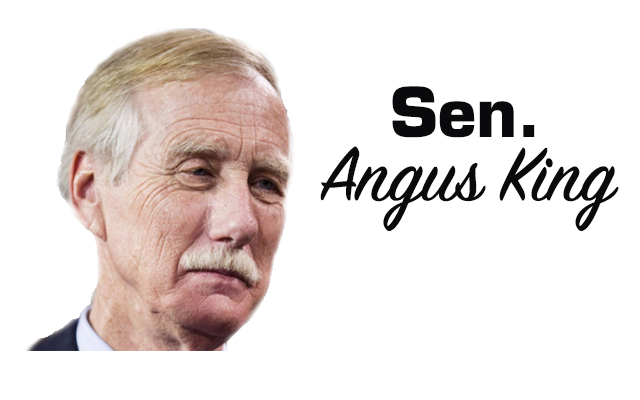I am deeply worried about the future of our democracy.
For over 100 years, we have struggled with the issue of money in politics, always seeking to find the right balance between freedom of political expression and the corrosive influence of the unchecked flow of money to public officials. We have had periodic scandals and periodic corrections; new laws and new ways to evade those laws.
But we have never before seen anything like what is happening today. This is why I am so concerned about the state of campaign finance in this country, and why I chaired a Senate Rules Committee Hearing to investigate the influence of dark money in our political system.
A perfect storm of new forces – court opinions, clever political operatives, and the high-stakes inherent in governmental decisions – have created a qualitatively new political landscape, where candidates are compelled to raise more and more money and yet, at the same time contend with virtually unlimited spending by shadowy entities representing nameless donors.
What has occurred in the past five years represents revolutionary, not evolutionary, change in the way the financing of political campaigns has been regulated in this country for over a hundred years, changes that threaten to undermine a fundamental principle of American democracy: one person, one vote.
The growth of outside spending in our campaign finance system is staggering. “Independent” outside groups have spent more than candidates on TV advertising (air time) in 10 of 12 competitive Senate races in the current campaign cycle – according to a new report from the Wesleyan Media Project in partnership with the Center for Responsive Politics. We have created a kind of parallel universe of campaign finance – the traditional candidate-based system with clear limits on sources and amounts and strict disclosure requirements, on the one hand, and the “independent” system with no control of sources, no limits, and no disclosure on the other.
Part of this new world is the rise of a system of undisclosed contributions—so-called “dark money”—and the Byzantine structure that frustrates (if not defeats) transparency. The $12.2 million spent by nondisclosing groups in 2014 is the equivalent of more than 75 percent of all independent expenditures by PACs, super PACs, 527s, and 501(c) organizations at this point in the 2010 midterms, according to the same Wesleyan/CRP survey.
This is not a partisan issue; it is a systemic issue that threatens all of us and our very democracy. What one party may now view as an advantage could overnight turn the other way. As the Old Testament warns, “those who sow the wind shall reap the whirlwind.”
Neither the hearing I chaired nor any proposal for reform that may come out of it should be viewed as an attack on any party, any citizen, or any group. The concern here is the system, and neither the Democrats nor the Republicans, or, most importantly, the country, stands to benefit from an arms race in undisclosed contributions, with both sides funneling millions from the shadows, hidden from the public’s eyes.
Disclosure in this context is not an infringement on the First Amendment. Recent Supreme Court rulings have explicitly invited us to strengthen our disclosure regime.
I’ve introduced the Real Time Transparency Act of 2014, which would require that all campaign contributions of $1000 or more be filed with the FEC within 48-hours. This legislation is just a start, and I will be talking to my colleagues about more potential solutions.
The challenge here is to find the balance between competing goods – freedom to exercise our political voice on the one hand, and the public’s interest in safeguarding the integrity of the political process on the other – and to restore that balance to what feels like an increasingly unbalanced system of campaign finance.
Presque Isle, ME
39
Clouds
Houlton, ME
39
Clouds
Caribou, ME
39
Clouds
Fort Kent, ME
38
Clouds
Change Location
- Presque Isle
- Houlton
- Caribou
- Fort Kent
© 2024 Bangor Publishing Company.








